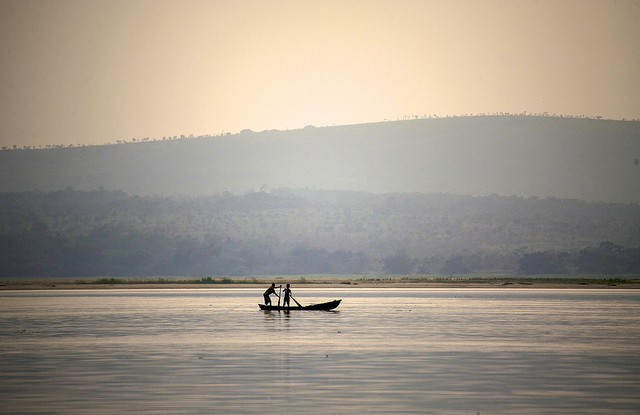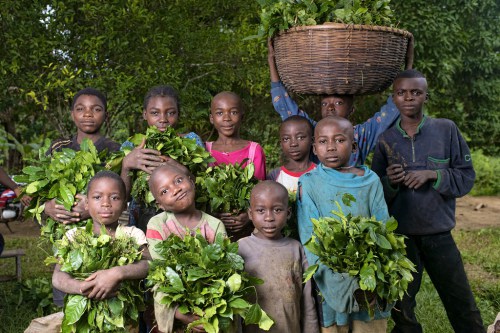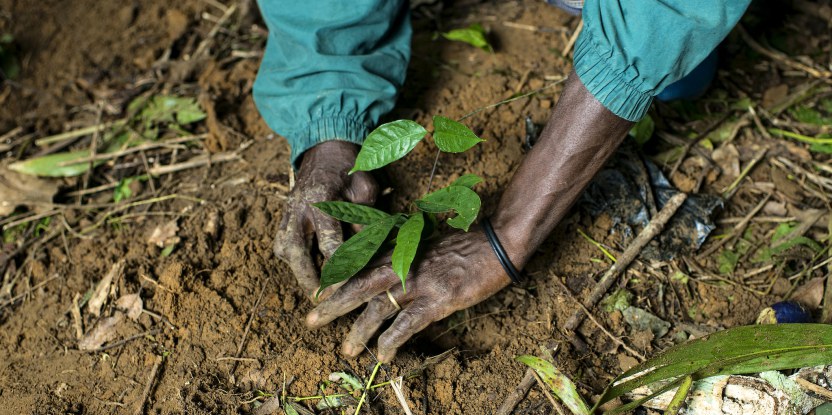
This blog post was originally published on the website of the Environmental Leadership Program at UC Berkeley
Although President Barack Obama did not make a stop in the heart of the continent in a recent trip to Africa, the U.S. administration is taking a new responsibility in this region. The United States is assuming, for the second time, leadership in the Congo Basin Forest Partnership (CBFP) at the moment where reducing deforestation in the Congo Basin is one of the objectives of Obama’s Global Climate Change Initiative (GCCI). The Congo Basin is also at the center of U.S. interest for development and conservation in sub-Saharan Africa.
The following text presents: (i) the previous role of the United States in the creation of CBFP ten years ago, (ii) the current challenges in the region and (iii) the way the United States will strategize its responses through the CBFP during the next two years.
The CBFP, launched by the Secretary of State Colin Powell at the 2002 World Summit on Sustainable Development in Johannesburg during the Rio + 10 summit, now brings together 70 partners from governments, donors, international organizations, NGOs, scientific institutions and the private sector. The CBFP works with COMIFAC (Central African Forests Commission) to promote conservation and sustainable management of the Congo Basin’s forest ecosystems.
The U.S. was the first country to facilitate the partnership; after this, the responsibility was taken over by France, Germany and Canada. During its first facilitation period (2003-2005), help provided by the United States in settling a web page (www.cbfp.org) launched a dynamic that led to the publication of the State of Forest of the Congo Basin (2006, 2008 & 2010 had been published already and the 2012/2013 is currently under edition) and defined a rationale for integrated resource management, which led to the definition of 12 landscapes for biodiversity conservation in the Congo Basin. The first U.S. facilitation period coincided with phase 2 of CARPE, which is one of the main programs of USAID on the environment in the Congo Basin. Around ten U.S. agencies (such as WRI, NASA, etc.) were grouped around CARPE during this period.
From 2005 to 2013, new information became available, many things changed in central Africa and the agenda has evolved. In terms of information, studies are showing how livelihoods, mainly food security through agriculture (Gowkowski and Sonwa 2011) and bushmeat (Nasi et al 2007), are intimately linked to the forest. A study from Miguel (2009) of the Missouri Botanical Garden shows that the African rain forest is most vulnerable to global climate change and that the current network of protected areas does not necessarily cover the most climatically stable forests, which have a higher biodiversity, in West and Central Africa.
Among the changes, pressures on wildlife now have new actors, such as trans-boundary poachers. Actors such as China or other South Asian countries/industries are also more present in the forest sectors in the region, and their logging and/or land acquisition for agro-industry can potentially influence the forest cover and use. An initiative in which USAID and IITA (International Institute of Tropical Agriculture) succeeded in bringing chocolate industries around a platform named STCP (Sustainable Tree Crop Program) with a good potential to free/reduce deforestation from the cocoa supply chain in West and Central Africa is now over (since 2011). Few initiatives as that one (a public-private partnership) or aiming to remove/reduce deforestation from a supply chain (of crops such as palm oil, cocoa, etc.) are currently active in the region.
An important aspect which has not yet received as much attention as the forest is the water, which is part of the forest ecosystem (Sonwa et al 2012b), and the mangroves, which is not yet in the priority agenda of COMIFAC. Climate change is taking more places in the forest and resources management agenda in the region. Responses in the region seem to be taking only one direction (REDD+, or Reducing Emissions from Deforestation and forest Degradation), synergizing with previous preoccupations on forest management in the Congo Basin (see Sonwa et al. 2010) and neglecting the other (adaptation).
Such initiatives, which will probably last beyond the US facilitation, will likely provide long term cooperation between the US and the countries of Central Africa
CIFOR and its partners paved the road for Adaptation through CoFCCA by, among other activities, settling priorities for the region (Sonwa et al 2012a). In the COBAM project, the Center for International Forestry Research (CIFOR) and partners are using some of the landscapes delineated during the first U.S. facilitation to produce information on the synergy between adaptation and mitigation.
Looking at the region through the lens of Rio, it is evident that the agenda is unfinished. A recent World Bank report showed what the future of the region — taking into consideration agriculture, energy, infrastructure and mining — may look like in the Congo Basin: development will probably be at the expense of the forest if the current trend is maintained (Megevang 2013). In the case of climate change, the most driving theme in the region, the future is uncertain if adaptation to climate change is not properly addressed. The United States has thus inherited a Congo Basin with challenging and complex issues.
For the period of 2013-2015, the new U.S. facilitation has already settled its objectives after several consultations. They are: (i) promotion of clear and concerted African leadership; (ii) addressing critical threats to biodiversity and the forest; (iii) adaptation and mitigation to climate change; (iv) promotion of effective institutions, regulatory regimes and governance to address forests and wildlife. The Convention on Biological Diversity (CBD) and the U.N Framework Convention for Climate Change (UNFCCC) occupy a good place in these objectives.
The “new U.S. era” is not implemented only by federal institutions in Washington, D.C., however. Coincidentally, Dr. Thomas Smith, a former PhD & Postdoc From the University of California, Berkeley, and now director of the Center for Tropical Research at the University of California, Los Angeles, is experiencing a new link with the Congo Basin, where he conducted some activities two decades ago. Smith is now back with an “International Research and Training Center (IRTC),” founded in 2010 with the aim of providing some research facilities, forming a basis for international researchers to establish long-term collaborations with African researchers and training a new generation of experts.
But he is looking for a long-term perspective with the Center for Integrative Development (CID), which will be built within the IITA campus in Yaoundé (International Institute of Tropical Agriculture) with the aim, besides research, of providing distance learning for American and African students. This fall, within the new UCLA paradigm for Central Africa, which is to build a permanent research and training facility in this region. The initiative is probably interesting for American authorities, as the U.S. ambassador has already paid a visit to the IITA campus where this CID will be built (1). Such initiatives, which will probably last beyond the US facilitation, will likely provide long term cooperation between the US and the countries of Central Africa.
The take away message is that the United States is back as the leader in forest management in central Africa at a time when several complex challenges related to the development and sustainable management of resources of the region have emerged, offering a new possibility for Obama to leave a landmark in the management of the Congo Basin through the facilitation during his second term at the White House.
For further information on the topics discussed in this blog post, please contact Denis Sonwa at d.sonwa@cgiar.org
Denis Sonwa will lead a panel discussion about increasing the impact of forestry research on policymaking at the Congo Basin Forest Partnership conference in Libreville, Gabon on December 2 to 4, 2013.
We want you to share Forests News content, which is licensed under Creative Commons Attribution-NonCommercial-ShareAlike 4.0 International (CC BY-NC-SA 4.0). This means you are free to redistribute our material for non-commercial purposes. All we ask is that you give Forests News appropriate credit and link to the original Forests News content, indicate if changes were made, and distribute your contributions under the same Creative Commons license. You must notify Forests News if you repost, reprint or reuse our materials by contacting forestsnews@cifor-icraf.org.

